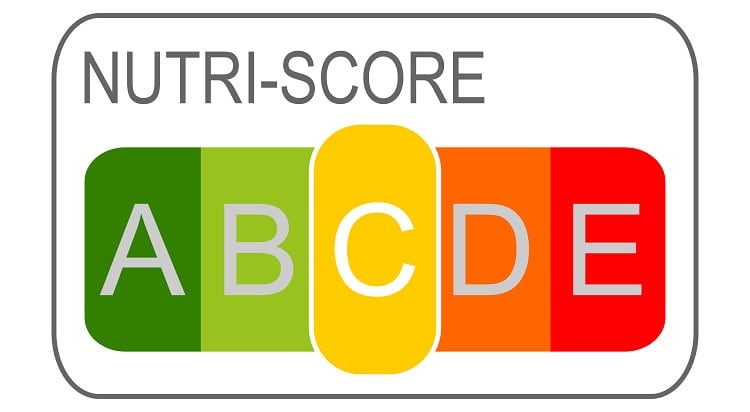Front-of-pack nutrition label Nutri-Score is attracting significant attention in the lead up to the European Commission’s report on nutrient profiles and Farm to Fork strategy.
First developed in France in 2017, the voluntary label has since been trialled or adopted in countries such as Spain, the Netherlands, and Belgium, and by food brands including Nestlé, PepsiCo, and the Kellogg Company.
However, not all in the food industry support the labelling system, with critics complaining Nutri-Score discriminates against ‘healthy’ foods rich in saturated fats, such as fish and olive oil.
FEDIOL, which represents Europe’s vegetable oil and proteinmeal sector, has spoken out against the current Nutri-Score system. The trade association argues the scheme makes it ‘impossible’ for single-ingredient foods, such as vegetable oils and fats, to improve their scoring.
Why doesn’t Nutri-Score work for bottled vegetable oils?
Nutri-Score ranks foods from -15 for the ‘healthiest’ products to +40 for those that are ‘less healthy’. On the basis of this score, the product receives a letter with a corresponding colour code: from dark green (A) to dark red (F).
However according to FEDIOL, vegetable oils – even those recommended by the World Health Organization (WHO) and national nutritional guidelines – never achieve a better Nutri-Score rating than ‘C’ or ‘D’.
“Which suggests that they should be consumed less frequently,” explained FEDIOL president John Grossmann.
“This is a contradiction to WHO guidelines, according to which oils rich in polyunsaturated fats, such as rapeseed, sunflower, soybean, or corn oils, should be favoured as part of a healthy diet, because the lower the risk of developing non-communicable diseases.”

Following up with FEDIOL’s Director-General Nathalie Lecocq, we were told that the issue lies in Nutri-Score’s failure to sufficiently differentiate between bottled vegetable oils within the category.
“It uses the criteria of energy, for which all vegetable oils get the same scoring and the saturated fat criteria does not enable to make a more differentiated comparison within the vegetable oil/fat category,” she told FoodNavigator.
“It is impossible for single-ingredient foods such as vegetable oils and fats to improve their scoring through reformulation, compared to processed foods.”
Nutri-Score altered for walnut and rapeseed oils
In 2019, the Nutri-Score scheme was updated to give a better rating to rapeseed oil, olive oil, and walnut oil. Under this modified system, the grade of these oils shifted from ‘D’ to ‘C’.
And according to the European Consumer Organisation (BEUC) – which supports the scheme – Nutri-Score is due for another review in 2021.
“It is crucial this review is conducted free from commercial interests and political influence to prevent any weakening of Nutri-Score,” noted BEUC.
FEDIOL’s Lecocq told this publication the trade organisation welcomed the September 2019 decision. “However, this only enables the oils to either stay in the ‘C’ category or to reach the ‘C’ category.
“There is a discrepancy between WHO/national dietary guidelines favouring vegetable oils with high content in omega-3 and in unsaturated fatty acids and the Nutri-Score system where the same vegetable oils are suggested to be eaten ‘less frequently’, because they are rated as ‘C’ or ‘D’.”
The system may not help consumers in certain markets favour vegetable oils and fats seen as ‘healthier’, she added.
FEDIOL proposal builds on Nutri-Score system
The membership organisation is therefore putting forward ‘concrete’ suggestions to align Nutri-Score with nutrition and health claims.
The proposal would allow bottled vegetable oils and fats high in omega-3 fatty acids and unsaturated fats to reach the ‘B’ or ‘C’ score, while leaving other oils and fats, that don’t meet these criteria, unchanged.
“FEDIOL has analysed different front-of-pack systems to understand how they work, including Nutri-Score,” Lecocq explained. If Nutri-Score is introduced EU-wide, which ‘seems to get more traction than others at the moment’, FEDIOL will suggest an approach which works for vegetable oils, we were told.
“The approach is based on existing criteria for EU approved health and nutrition claims i.e. high in omega-3 and high in unsaturated fat, and follows recommendations by the WHO/national dietary guidelines regarding rapeseed oil, walnut oil, olive oil, soybean oil, but also some other oils like linseed oil or camelina oil,” she explained.
“It improves the categorization of these bottled vegetable oils into the ‘B’ or ‘C’ category, allowing a differentiation based on their fatty acid profile.”

When asked whether a category-specific proposal could risk confusing consumers, Lecocq stressed that FEDIOL is not proposing another system, but to build on an existing one.
“The fact that there are proposals arising specific to food categories seems less of a problem than the fact that in reality, we see several EU countries starting to set up their specific systems,” she continued.
“Even those that seem to choose Nutri-Score admit that it has its flaws and needs adjustment. At some point, if we want to avoid a patchwork of systems across Member States, this will require to be taken up at EU level.”




